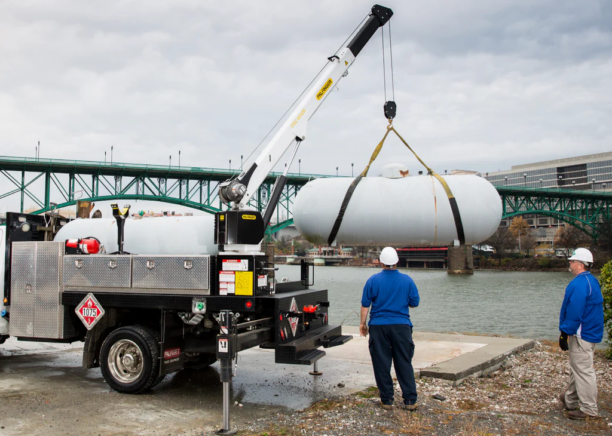Maximizing Summer Efficiency for Propane Business Owners
As summer rolls on, propane retailers and distributors often face a seasonal slowdown, with warmer weather reducing the demand for heating services. However, savvy business owners recognize this lull as an opportunity to prepare for the upcoming winter rush and enhance operational readiness. Here are some top strategic ways that propane businesses can make the… Continue reading Maximizing Summer Efficiency for Propane Business Owners
As summer rolls on, propane retailers and distributors often face a seasonal slowdown, with warmer weather reducing the demand for heating services. However, savvy business owners recognize this lull as an opportunity to prepare for the upcoming winter rush and enhance operational readiness. Here are some top strategic ways that propane businesses can make the most of the summer months.
Tank Reconditioning
Propane tanks are vital assets that require periodic maintenance to ensure their safety and longevity. Summer provides an ideal window to inspect tanks for signs of rust or corrosion. Sandblasting and repainting corroded areas, along with replacing worn-out valves, can prevent potential leaks and extend the tank’s lifespan.
Fleet Maintenance
Conducting preventive maintenance on bobtail fleets during summer minimizes the risk of unexpected downtime during peak demand periods. Routine inspections and pressure tests mandated by the Department of Transportation can be efficiently completed, ensuring greater fleet readiness and compliance with safety regulations.
Team Training
Investing in employee training during the summer enhances safety and operational efficiency. Programs offered by organizations like the Propane Education & Research Council (PERC) cover topics from defensive driving to propane safety protocols. Mentoring programs can also pair new hires with experienced staff to reinforce best practices and prepare teams for the high-demand winter months.
Agricultural Demand
Summer is crucial for understanding and meeting agricultural propane demands. Propane plays a critical role in powering farm operations such as grain dryers, irrigation engines, and agricultural vehicles. Identifying local agricultural needs and offering tailored propane solutions for them can open new revenue streams and strengthen partnerships with farming communities.
Strategic Pricing
Take advantage of summer pricing opportunities to secure competitive propane rates for the upcoming season. Offering incentives such as price protection and discounts on summer propane purchases not only attracts customers but also fosters loyalty and trust.
Enhanced Customer Engagement
Maintain strong customer relationships through proactive outreach initiatives during the summer. Utilize newsletters, surveys, and social media platforms to inform customers about energy-efficient solutions, outdoor living products fueled by propane, and seasonal promotions. Engaging with customers helps increase their satisfaction and reinforces brand loyalty.
Referral Programs
Harness the power of word-of-mouth marketing by launching summer referral campaigns. Incentivize existing customers with rewards for referring new clients, thereby organically expanding your customer base and generating sustainable revenue streams.
Technological Advancements
Explore innovative technologies that enhance service delivery and customer satisfaction. Monitoring systems ensure reliable propane supply, while tankless propane water heaters offer energy efficiency and cost savings. Adopting such advancements not only sets your business apart but also meets evolving customer expectations.
A Season of Opportunity
By utilizing the summer months wisely, propane business owners can strengthen operations, expand market reach, and enhance customer satisfaction. Investing in tank maintenance, fleet readiness, employee training, strategic pricing, customer engagement, referral campaigns, and technological innovations positions businesses for success during the coming peak seasons. Embrace these strategies to maximize efficiency, drive growth, and prepare for the demands of winter service, ensuring sustained business success in the propane industry.


